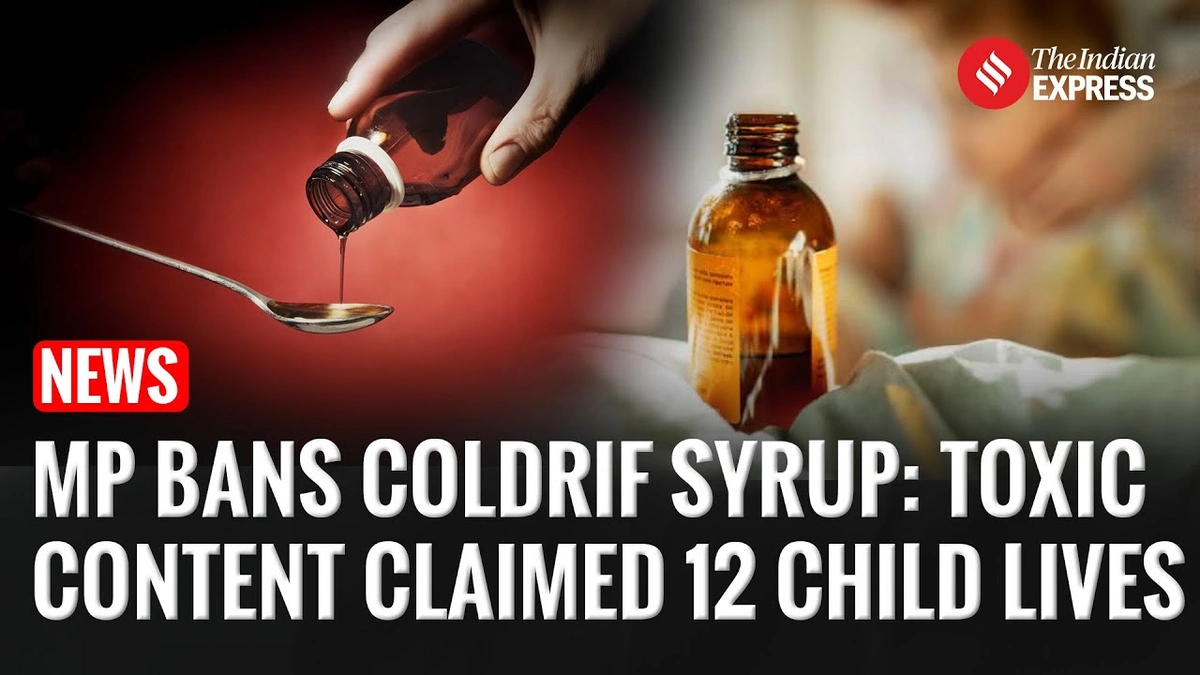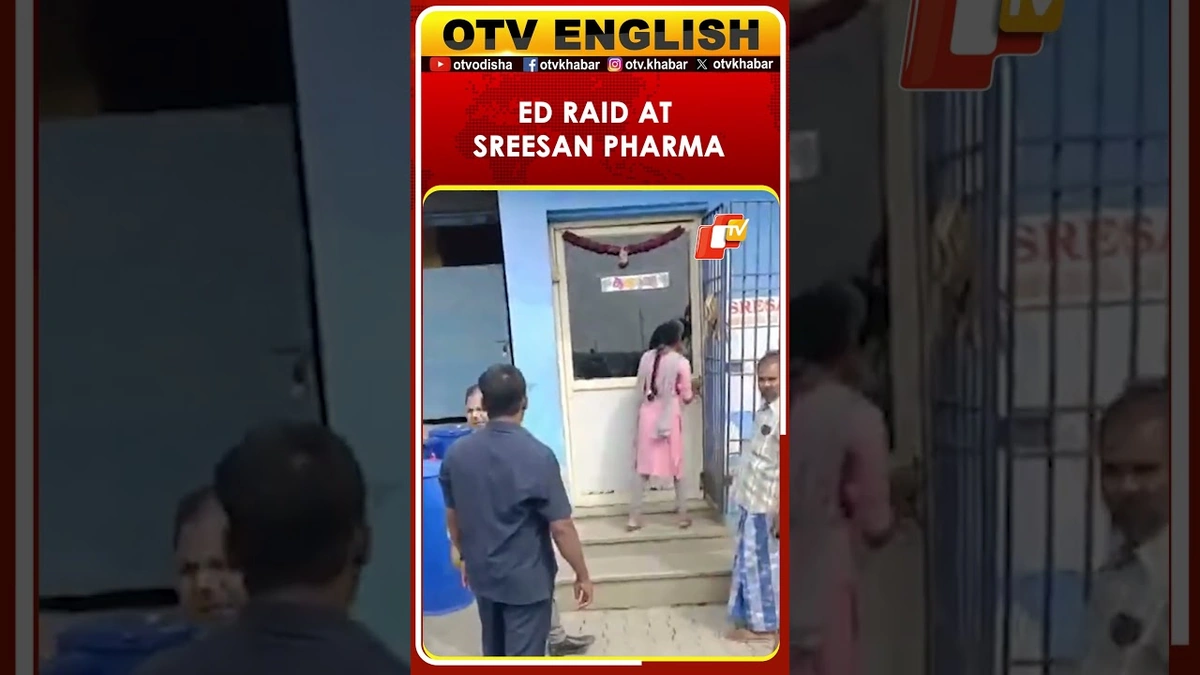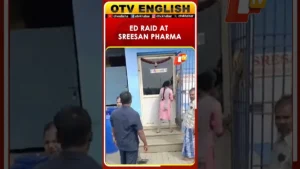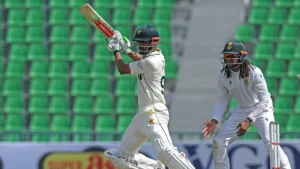Two More Children Dead, Several Critical After ‘Coldriff’ Syrup Intake in Nagpur
It’s a parent’s worst nightmare. You give your child medicine, trusting it will make them better, only to discover it’s causing harm. And in the tragic case of the ‘Coldriff’ syrup deaths in Nagpur, that nightmare has become a horrifying reality for several families. Two more young lives have been lost, and several other children are battling for their lives. This isn’t just a news story; it’s a wake-up call. So, what’s really going on here? Let’s dive in and understand the coldriff syrup deaths, peeling back the layers of this heartbreaking situation.
The Immediate Aftermath and Official Response
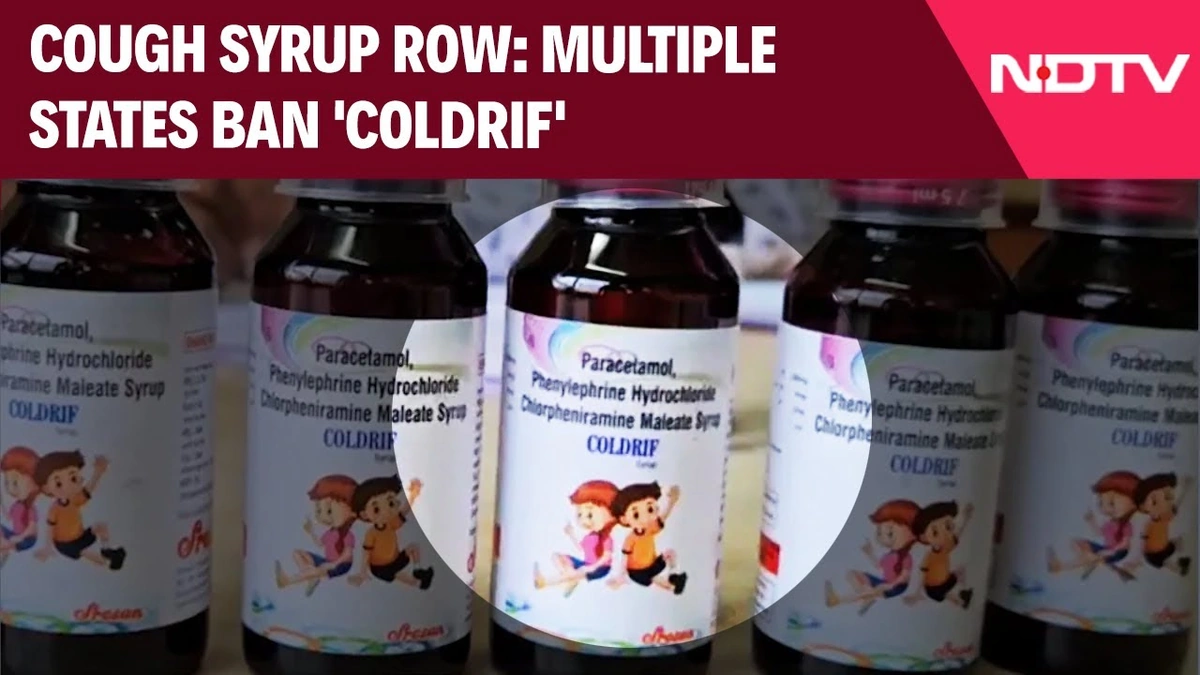
The immediate aftermath has been, understandably, chaotic. Authorities are scrambling to understand the extent of the contamination and to pull the implicated batches of ‘Coldriff’ syrup from pharmacies and homes. But, let’s be honest, that’s closing the stable door after the horse has bolted, isn’t it? Investigations are underway, but families are demanding answers now . What fascinates me is the speed at which this information travels. Social media is ablaze, and rightly so. People want transparency, and they want it fast.
The official response has been… well, typical. Statements of concern, investigations promised, and assurances that everything is being done. But what does that actually mean for the families keeping vigil at their children’s bedsides? What I see missing is genuine empathy and a proactive plan to prevent this from ever happening again. We need more than just investigations; we need accountability.
Why This Matters | A Deeper Look at India’s Pharmaceutical Oversight
Here’s the thing: this tragedy highlights a much larger issue – the robustness (or lack thereof) of pharmaceutical oversight in India. We’re talking about children’s lives here, not just a minor inconvenience. A common mistake I see people make is assuming that all medicines are created equal and subject to the same rigorous testing. Not true. The sheer volume of pharmaceutical production in India, coupled with a sometimes-lax regulatory environment, can create opportunities for substandard or contaminated products to slip through the cracks.
It makes you wonder about the drug quality control measures that were in place. Were they adequate? Were they properly enforced? Where were the checks and balances? These aren’t just rhetorical questions; they are questions that need urgent and transparent answers. This incident should prompt a complete overhaul of the pharmaceutical regulations in India, with a focus on stricter testing, better monitoring, and harsher penalties for non-compliance.
How to Protect Your Family | A Practical Guide
So, what can you, as a parent or caregiver, do to protect your family? It feels helpless, doesn’t it? But there are steps you can take. Let’s be clear; I’m not suggesting you become a pharmaceutical expert overnight. But knowledge is power, and being informed is your best defense.
1. Always buy medicines from reputable pharmacies. It sounds obvious, but it’s crucial. Avoid buying from unverified sources or online platforms with questionable credentials. Support your local, trusted pharmacist – they’re a valuable resource.
2. Check the labels carefully. Look for manufacturing dates, expiry dates, and any signs of tampering. If something looks off, don’t use it. Contact the manufacturer or the pharmacy immediately.
3. Research the manufacturer. Before giving any medication to your child, take a few minutes to research the manufacturer online. Look for reviews, news articles, or any red flags that might indicate a problem.
4. Report any adverse reactions. If your child experiences any unexpected side effects after taking a medication, report it to your doctor immediately. You can also report it to the appropriate regulatory authority. This helps build a picture of potential problems and can prevent others from suffering.
5. Advocate for stricter regulations. This is where your voice truly matters. Write to your elected officials, sign petitions, and demand greater transparency and accountability in the pharmaceutical industry. The lives of our children depend on it.
The Emotional Toll | Grief, Fear, and the Loss of Trust
Beyond the statistics and the investigations, let’s not forget the human cost of this tragedy. The families who have lost their children are experiencing unimaginable grief. The parents of the children who are critically ill are living in constant fear. And all parents across India are now grappling with a deep sense of unease and a loss of trust in the very systems designed to protect them. That moment of panic when you realize that the medicine you gave your child might be the cause of their suffering… It’s a feeling no parent should ever have to experience. Losing a child is devastating.
We need to acknowledge and validate these emotions. Grief counseling and support services should be readily available to the affected families. And we, as a society, need to create a safe space for parents to voice their concerns and anxieties without fear of judgment. The emotional scars from this tragedy will run deep, and healing will take time.
Preventing Future Tragedies | A Call to Action
So, where do we go from here? Let me rephrase that for clarity: what must we do to ensure this never happens again? The answer is multi-faceted and requires a concerted effort from all stakeholders. Stricter regulations, better enforcement, increased transparency, and greater accountability are all essential. But so, too, is a shift in mindset. We need to move away from a culture of complacency and prioritize the safety and well-being of our children above all else. Let’s be honest; the current system is simply not good enough.
The Indian government needs to invest heavily in upgrading drug manufacturing standards. There should be frequent inspections to ensure that pharmaceutical companies are following all guidelines. Also, we need more stringent penalties for anyone who breaks these rules.
This isn’t just about assigning blame; it’s about creating a system that is inherently safer, more resilient, and more trustworthy. It’s about building a future where parents can give their children medicine without fearing for their lives.
I initially thought this was straightforward, but then I realized the depth of the problem. The ‘Coldriff’ syrup deaths are not just a tragedy; they are a symptom of a larger systemic issue. Addressing this issue requires courage, commitment, and a willingness to challenge the status quo. The health of our children is at stake. Let’s act like it.
News travels fast , so do the problems associated with it. Make sure you verify the information you read on the internet.
FAQ
What is Coldriff syrup and what is it used for?
Coldriff syrup is, or rather was, a common medication used to treat cold and flu symptoms in children. It’s intended to relieve congestion, cough, and fever.
What are the potential side effects of contaminated cough syrup?
The side effects of contaminated cough syrup can be severe, including kidney damage, neurological problems, and even death, as tragically seen in the recent cases. This highlights the importance of safe medication for children.
How can I be sure that the medicine I give my child is safe?
Always buy medicines from reputable pharmacies, check the labels carefully, research the manufacturer, and report any adverse reactions to your doctor.
What should I do if I suspect my child has taken contaminated syrup?
Seek immediate medical attention. Time is of the essence. Inform the doctors about your suspicions regarding the contaminated cough syrup.
Where can I report a suspected case of medication contamination?
You can report it to your local health authorities or the national drug regulatory agency. In India, that would be the Central Drugs Standard Control Organisation (CDSCO).
What are the responsibilities of pharmaceutical companies?
Pharmaceutical companies have a responsibility to ensure the safety and quality of their products through rigorous testing, quality control measures, and adherence to regulatory guidelines. Quality control in pharma is extremely important to protect the customers.
